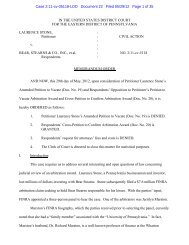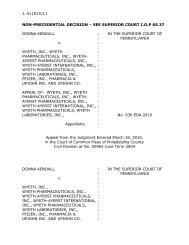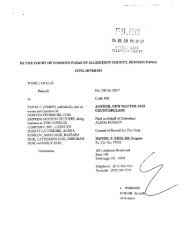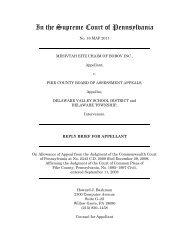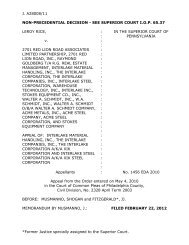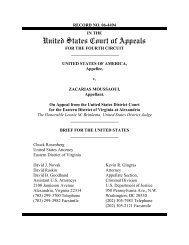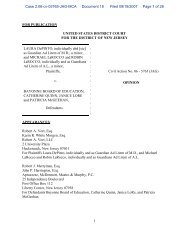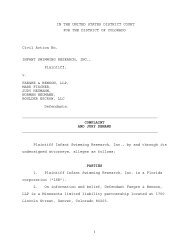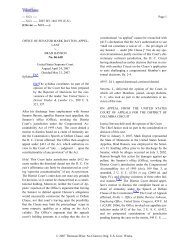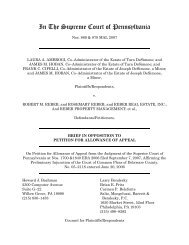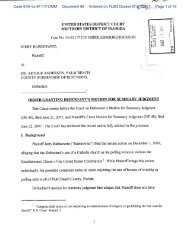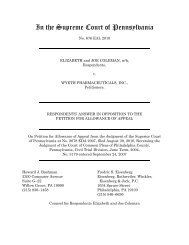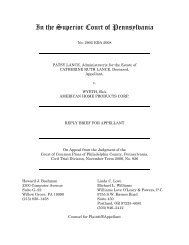petition for rehearing en banc - How Appealing
petition for rehearing en banc - How Appealing
petition for rehearing en banc - How Appealing
Create successful ePaper yourself
Turn your PDF publications into a flip-book with our unique Google optimized e-Paper software.
Case: 07-4080 Docum<strong>en</strong>t: 108 Filed: 10/29/2010 Pages: 15<br />
Nos. 07-4080, 08-1030, 08-1072, 08-1106 11<br />
the board might have decided that the addition to their<br />
income warranted a reduction in the size of the fees. “A<br />
man is none the less cheated out of his property, wh<strong>en</strong><br />
he is induced to part with it by fraud, because he gets<br />
a quid pro quo of equal value. It may be impossible to<br />
measure his loss by the gross scales available to a court,<br />
but he has suffered a wrong; he has lost his chance<br />
to bargain with the facts be<strong>for</strong>e him.” United States v.<br />
Rowe, 56 F.2d 747, 749 (2d Cir. 1932) (L. Hand, J.); see also<br />
Ranke v. United States, 873 F.2d 1033, 1039-40 (7th Cir.<br />
1989). The def<strong>en</strong>dants had a duty of candor to the board<br />
in the conflict-of-interest situation in which they found<br />
themselves, and by violating that duty they caused<br />
Hollinger to make false filings with the SEC, and they<br />
did so <strong>for</strong> their private gain. That was a solid honestservices<br />
case be<strong>for</strong>e the Supreme Court weighed in, but<br />
not a solid pecuniary-fraud case. The governm<strong>en</strong>t<br />
did not argue, as it might have done, by analogy to cases<br />
such as United States v. Richman, 944 F.2d 323, 330 (7th<br />
Cir. 1991), and United States v. Gole, 158 F.3d 166, 168<br />
(2d Cir. 1998), that ev<strong>en</strong> if the def<strong>en</strong>dants were owed<br />
the fees, they had obtained them fraudul<strong>en</strong>tly, as wh<strong>en</strong><br />
an employee who is owed $100 by his employer <strong>for</strong>ges<br />
a check to himself <strong>for</strong> the amount and thus fraudul<strong>en</strong>tly<br />
appropriates money owed him. Cf. Edwards v. State, 181<br />
N.W.2d 383, 387-88 (Wis. 1970); State v. Self, 713 P.2d<br />
142, 144 (Wash. App. 1986).<br />
What we’re calling the second fraud count involves<br />
paym<strong>en</strong>ts to the def<strong>en</strong>dants (via Hollinger) of $600,000<br />
in connection with Hollinger’s sale to two companies,<br />
Forum and Paxton, which to simplify we’ll treat as one,



